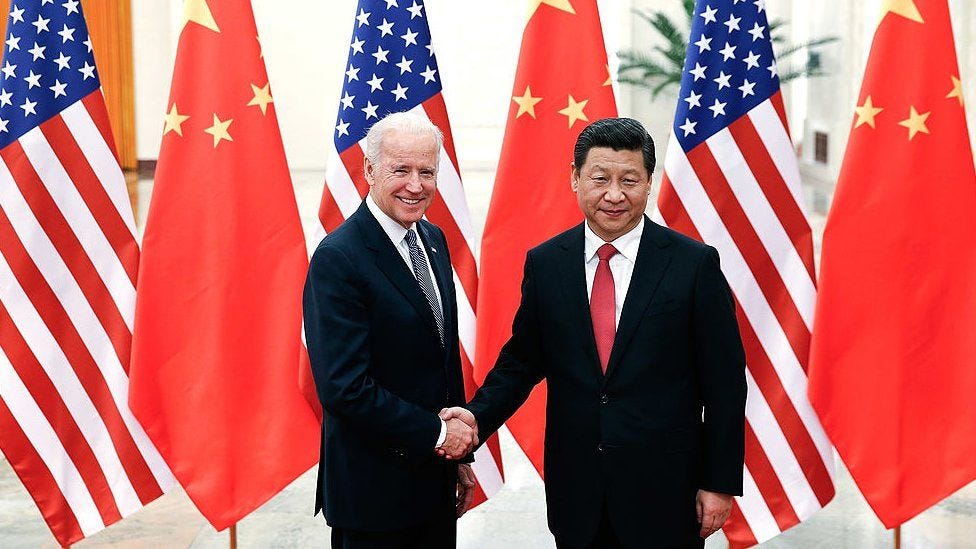TikTok Bans Incoming
Let’s begin with a history lesson. Remember Odysseus?
He was a legendary Greek King and the main character of Homer’s Odyssey, a ridiculously long poem I had to read in 9th grade. And the relevant story here is the story of the sirens, who lured sailors into shipwrecks with their voices. As the story goes, Odysseus knew that he wasn’t immune to the sirens’ song, so he instructed his crew to block their ears with beeswax and tie him to the mast so he couldn’t steer them off course. By doing so, he was able to enjoy the music of the sirens without dooming himself and his men.
Is this a book report? What about TikTok?
Put simply, TikTok is in the process of lashing itself to the mast to avoid the dangers of the sirens’ song. But it might be too late. Let me explain.
The TikTok explosion
TikTok has ~150 million American users. That’s almost one in three Americans… And amongst teenagers, it’s even more popular, with two in three using the app according to the Washington Post. Even in the super competitive social media market, TikTok has risen above the fray. It now has other apps trying to copy its format, with short-form, highly addictive videos, and the ability to go viral not just within your friend or follower group (a la Facebook or Twitter), but also across all users of the global platform. Here’s a graph that charts TikTok’s growth:
And this growth has also meant growing groups of supporters, including:
Superuser creators who are monetizing their presence on the platform.
Viewers who enjoy watching and spend lots of time on the app.
The most well-known superuser is Charli D’Amelio, who in March 2020 was the most followed creator on the platform. Since 2021, she’s had her own show on Hulu “The D’Amelio Show”, and now has a net worth estimated at $20M.
And as for normal users, the usage and viewing time is staggering. Amongst that 1 in 3 Americans (2 in 3 American teenagers), the average viewing time is 80 minutes per day on TikTok.
The Threat
Why is the US thinking of banning TikTok? How could something this popular be a bad thing?
Geopolitics. The US and China are battling for global supremacy. Having the best technology firms in the world isn’t only important for bragging rights. Weapons systems, surveillance capabilities, and other military applications make tech leadership critical. Not to mention the huge GDP growth that a booming tech sector can help fuel. TikTok is owned by ByteDance, a Chinese internet company. I wrote more about the US and China rivalry in “A Tale of Two Tech Powers”, but here’s a quick reminder:
In 2021, China’s tech sector reached $7.1 trillion. It was second only to the US, which reached $15.3 trillion.
This also isn’t the first time the two nations have banned each others’ tech. China famously banned Facebook to protect its own social media apps, and the US in turn banned networking hardware from Huawei (I wrote more on that in “AR Without Borders”). While this point on geopolitics isn’t being stated publicly – at least not in the research I’m seeing – I think the US-China rivalry is an important piece of context. The US is trying to slow down China’s tech progress.
User Data. The Chinese Communist Party (CCP) has laws requiring tech companies to give the CCP access to user data, and China’s president Xi Jinping has been playing “bad cop” extremely convincingly for tech companies in China recently (cough, Jack Ma). This means that these laws aren’t just for show – the CCP is paying close attention to tech firms and asserting its influence where it feels it needs to. So if you use TikTok, the CCP could know: where you were geographically when you watched, what content you watched and for how long, what people you follow, etc. They wouldn’t know what you did on other apps on your phone (ex. which Google Maps addresses you navigated to). Nor would they be able to hack (Mission Impossible style) through your TikTok app to your WiFi connection and then to other devices on your network… But even the TikTok data itself is powerful. As reported in the Associated Press, there have already been instances of inappropriate use of user data. In December, ByteDance “…fired four employees who accessed the IP addresses and other data of two journalists while attempting to uncover the source of a leaked report.”
Chinese Influence. In the 2016 election, Russia interfered by spreading misinformation and sowing discord, trying to create a sense of despair and push Americans apart. To do that, they relied on Facebook and other popular US social media apps. So it’s no surprise that US representatives are concerned about what a motivated CCP might do to influence discourse among and between Americans. As one theoretical example, they could use their recommendation algorithm (responsible for queuing videos that will come up next) to amplify videos that subtly question American values, undermine American leadership (both parties), and generally contribute to more inflamed internal discourse.
US Response
As a result of these threats, the US government has been increasingly concerned about the app, and has taken steps towards banning it. It already banned the app for all Federal employees, and individual states (cough, Montana) have also attempted a complete ban for all users. On March 23rd, the US Committee on Energy and Commerce held a hearing with the CEO of TikTok – grilling him on user privacy and Chinese influence. Why? Because congress is considering banning TikTok for all users in the US, or requiring that ByteDance sell TikTok to an American company.
Here's where we can return to the story about Odysseus and the sirens.
ByteDance’s TikTok is like Odysseus. It wants to stay in control and keep sailing home, avoiding shipwreck. But as a Chinese company, the temptation to give-in to the sirens’ song – using their users’ data for their own purposes, or subtly influencing Americans – is strong.
So now, TikTok is attempting to bind itself to the mast of the ship. How? With a big, American project.
Project Texas
This project is a move by ByteDance to address the threats that Congress sees with respect to user data and Chinese influence. Essentially, they are contracting with Oracle to store all US user data and recommendation algorithms in US cloud servers. Oracle employees will be given full systems access, and they will help perform audits of the system to ensure only American TikTok employees have access. And this isn’t just a proposal – TikTok has already spent $1.5B on implementing Project Texas, and 100% of US user traffic is already being routed to Oracle.
On the one hand, this is a meaningful step they’ve taken to address perceived threats. As TikTok CEO Shou Chew (photo below) said in his written testimony to congress, “Project Texas is designed to introduce layers of transparency and vetting that are commonly used for defense contractors but are unheard of for consumer platforms.”
On the other hand, Oracle has not yet been granted full access to source code, algorithms, and data models for performing their audits. And the old user data (from prior to Project Texas) has not yet been formally deleted from non-Oracle servers.
Wrapping Up
Things are always bigger in Texas, but I don’t think Project Texas is enough to save TikTok from a ban. To beat the Odysseus metaphor to death, it’s too late to tie yourself to the mast… you’re already crashing into the rocks.
First, this doesn’t do anything to repair the damage from user data already in the hands of the CCP. They might claim to delete all data from non-Oracle servers, but it’s really hard to prove you don’t have backups. The reality is that the data on Americans has probably already been married to other large datasets, mixed and re-mixed. At this point, it’s nearly impossible to split-up and remove that TikTok user data, even if they wanted to.
Second, even if the user data and Chinese influence threats are nominally mitigated by having Oracle hosting the data and running audits, that doesn’t mean TikTok’s US leadership is immune from pressure and steering from China. Ultimately, if China is unwilling to let ByteDance sell/spin TikTok (which it seems they are), then TikTok’s people will still report up through a chain that eventually goes to ByteDance in China. It’s naïve to think that the CCP can’t influence individuals within TikTok’s chain of command.
Third, even if you had completely solved the user privacy and Chinese influence threats with Project Texas (which I would argue you haven’t), this is all taking place while the US and China are in a power struggle. Even aside from the direct threats, China is increasingly seen by the US as a rival that needs to be beaten. There is a rising tide of animosity toward Chinese companies and a backtracking of some of the globalization we saw over the last few decades. It’s not a good time to be a US Company overly dependent on China, nor a Chinese company overly dependent on the US.
Fourth, even the large groups of support we talked about earlier (superusers and viewers) aren’t as dedicated to TikTok as you might think. While Charli D’Amelio is a shining example of what creator monetization might look like, other creators have struggled to monetize their engagement – even accounts with millions of followers have only made a few thousand dollars in split revenue from TikTok, according to Business Insider. And in my opinion, should a TikTok ban happen, the users spending 80 minutes per day on the app would just shift their watching to Instagram Reels and YouTube Shorts – albeit with some grumbling.
As a result, I think we will see TikTok get banned sometime during 2023. It will take some time to craft an approach to the ban that is justifiable internationally and doesn’t create too much retaliation from China, but it will happen. Plus, our government employees can’t access it right now… why should you!?





